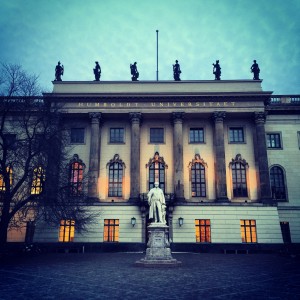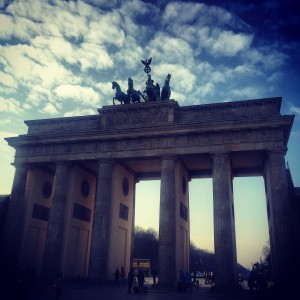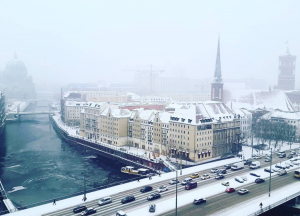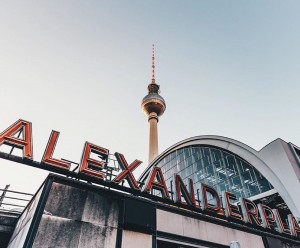Pre-departure
Planning a trip abroad is perhaps one of the most exciting things to do. While it is important to read up and plan immaculately, it is just as important to keep in mind that no amount of planning would render a trip perfect and that, too, is okay. If you are, like me, inclined to plan too much, you might lose out on wonderful opportunities resulting, such as spur-of-the-moment day trips, changing your itinerary, or following the advice of locals whom you’ll meet at your host university, the local bar, or perhaps a hostel if you do an extended trip.
The first obstacle that stands in the way of you and leaving for your destination is your visa application. It is important that you do not underestimate the seriousness of this application: if documents are missing, they will reject your application outright. Have a look at the instructions on the website of the host country and be sure to painstakingly follow those instructions. If you decide to extend your winter school by doing a trip before or afterwards, you’ll need to provide proof of accommodation for that time. The problem is, however, that you have yet to figure out where you want to go, or perhaps you want the freedom to decide your destination while you are there. This is possible and I always use one of the following ways: the first possibility is to book through Bookings.com and reserve a hotel room at no cost which you may later cancel or, secondly, get a friend from the host country to write you an invitation letter.
We are always inclined to over pack, especially for the European winter. Unless you are a frequent traveller to winter destinations, we often overestimate or underestimate how to prepare for such trips. In this regards, it is important to ask for tips from someone who has been to your destination before. While slip-in shoes might be adequate for South Africa winter, it is most definitely not suitable for snow. Remember to get one, decent winter jacket. At the same time, it is not necessary to pack a number of such jackets. If there is a problem, you can always pop into a clothing store such as H&M or Primark which, when they have a sale, is even cheaper than in South Africa!
Remember that you will live in a city for a few weeks, and not just travel. Pack regular clothes that you feel comfortable wearing to class, to the bar, or the other regular places you visit while at home. If you are a lover of the classical arts, do make the effort to enter one of the beautiful opera houses by buying a ticket for the opera, ballet, or theatre. Remember that some opera houses in Europe have a strict dress code so do not forget to pack your blazer and tie, or evening dress.
It is important to read the information from the host university diligently. The advice given by them has been compiled following years of hosting international students, so they are I a good position to make some suggestions.
If you are thinking of buying a sim card, do not run into the first mobile service provider and buy the first thing you see. Do your research. Often, local supermarkets have inexpensive sim cards with inexpensive pay as you go plans. In Germany, for example, Aldi (a local supermarket found throughout the country) has AldiTalk with a sim card costing €10 with which you get €10 airtime. With 15€ airtime, you can buy 5GB of data!
If you go to Europe, make an effort to travel before or after your trip. While it may seem like an expensive option to do, your flights and the major part of your trip has already been paid for and you might not get such an opportunity again soon. Trains or buses within Europe are usually inexpensive and makes for a comfortable journey where you get to see various places as you travel.
Experience at the Host University:

Your time at the host university is both an opportunity to study and experience the city and its people – it is important to find a balance between the two.
I completed a law course at Humboldt University in Berlin focusing on the international protection of human rights. The classroom experience is rich as you get to learn from international experts who has a background different to our own academic staff. Different persons from different parts of the world have been taught differently and this is a wonderful opportunity to enrich yourself. Do not be afraid to engage with the lecturer and your peers. Take your work seriously, study hard, and do your best to always attend class and complete the necessary assignments.

Apart from the lectures, we had a number of excursions. Some of these outings were academic-related activities, such as visiting the European Center for Constitional and Human Rights, while other activities are organised by the international office and include students from all courses. Some of these activities include visiting the German Parliament, the Berlin Parliament, the German Chancellery, and less “serious” ones like ice-skating or sightseeing. Make use of these opportunities as some of these excursions are not available to the general public. Even though you might not be interested in a certain topic, use the opportunity to expand your borders and learn somethings new. For example, your disinterest might demotivate you from visiting the German Parliament. However, the Reichstag has an incredible history spanning over two world wars, the architecture is immaculate, and the stories contained within its walls will stay with you for years to come.
It is important to note that the host university and lecturer take the classes seriously – you should too. While it is important to maintain a balance between your studies and social life, winter or summer school is not an opportunity to party all the time. In Germany, the lecturers do not spoon feed students. While I found that this is generally the same as in South Africa, many students were taken aback by the serious intention of the lecturer and the workload of the course. If your lecturer gives you work to prepare beforehand, do so in order to meaningfully engage.

The classes are much smaller than at Stellenbosch and allow for more engagement. Do not be afraid to voice your opinion or ask questions. The course brings together students from all over the world and engagement is an important facet of learning from people with different backgrounds and perspectives.

Return to Stellenbosch
Returning home after a trip abroad has always for me been one of mixed emotions. On the one hand, life must return back to normal, you’re excited to see family and friends, and you’re glad that you can again afford things such as going out. At the same time, few things in life have the power to change a person as much as travelling abroad.
Most of the trip will only start making sense once you return as you realise how much you have learnt and how much you have grown while away. Give yourself time to be reminiscent all fall back into the memories of your time away. At the same time, however, it is important not to fall into the trap of being caught in a dream world and allow your work back home to suffer as a result of that.
One of the greatest realisations is that our problems are not isolated. Each country is unique with its own set of challenges to overcome. Viewing our own country’s problems in that perspective allows for an important mind shift in the way we might attempt to address them. At the same time, do not constantly compare South Africa with a European country as this will leave you in despair. While Europe might have the infrastructure, services and public transport that makes everyday life much easier and safer, South Africa has an abundance of friendly people, beautiful landscapes and a mixture of cultures. Interestingly, we as South Africans often complain about the lack of understanding and mixing of different cultures, but this problem is not unique to South Africa. In Germany, there has been a big uproar over the building of a mosque in Cologne. Had a mosque been built in South Africa, all people would not only accept it, but many would celebrate it.
On a more practical note, I would suggest going through your photographs as soon as possible. Print it, make a movie or save it in chronological order. If you can, write down the places depicted in the photographs as this is lost over time to even the greatest memories.
My time in Germany has allowed me to realise that the word is much bigger than we think but small enough to be within our grasp. I plan on doing a 6-month exchange to Germany to study further and hopefully become fluent in German. Luckily the law firm which I will join after my studies have offices throughout Germany. Who knows, I might very well end up returning again as an attorney.

